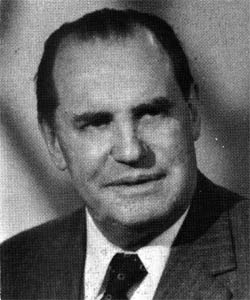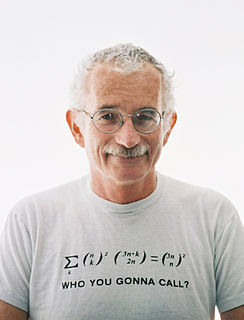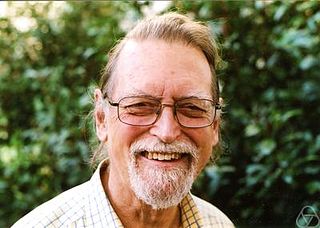A Quote by Jean Dieudonne
On foundations we believe in the reality of mathematics, but of course, when philosophers attack us with their paradoxes, we rush to hide behind formalism and say 'mathematics is just a combination of meaningless symbols,'... Finally we are left in peace to go back to our mathematics and do it as we have always done, with the feeling each mathematician has that he is working with something real. The sensation is probably an illusion, but it is very convenient.
Related Quotes
If you ask ... the man in the street ... the human significance of mathematics, the answer of the world will be, that mathematics has given mankind a metrical and computatory art essential to the effective conduct of daily life, that mathematics admits of countless applications in engineering and the natural sciences, and finally that mathematics is a most excellent instrumentality for giving mental discipline... [A mathematician will add] that mathematics is the exact science, the science of exact thought or of rigorous thinking.
I don't think that everyone should become a mathematician, but I do believe that many students don't give mathematics a real chance. I did poorly in math for a couple of years in middle school; I was just not interested in thinking about it. I can see that without being excited mathematics can look pointless and cold. The beauty of mathematics only shows itself to more patient followers.
One cannot inquire into the foundations and nature of mathematics without delving into the question of the operations by which the mathematical activity of the mind is conducted. If one failed to take that into account, then one would be left studying only the language in which mathematics is represented rather than the essence of mathematics.
Mathematics alone make us feel the limits of our intelligence. For we can always suppose in the case of an experiment that it is inexplicable because we don't happen to have all the data. In mathematics we have all the data, brought together in the full light of demonstration, and yet we don't understand. We always come back to the contemplation of our human wretchedness. What force is in relation to our will, the impenetrable opacity of mathematics is in relation to our intelligence.
You can keep counting forever. The answer is infinity. But, quite frankly, I don't think I ever liked it. I always found something repulsive about it. I prefer finite mathematics much more than infinite mathematics. I think that it is much more natural, much more appealing and the theory is much more beautiful. It is very concrete. It is something that you can touch and something you can feel and something to relate to. Infinity mathematics, to me, is something that is meaningless, because it is abstract nonsense.
Mystery is an inescapable ingredient of mathematics. Mathematics is full of unanswered questions, which far outnumber known theorems and results. It's the nature of mathematics to pose more problems than it can solve. Indeed, mathematics itself may be built on small islands of truth comprising the pieces of mathematics that can be validated by relatively short proofs. All else is speculation.
To criticize mathematics for its abstraction is to miss the point entirely. Abstraction is what makes mathematics work. If you concentrate too closely on too limited an application of a mathematical idea, you rob the mathematician of his most important tools: analogy, generality, and simplicity. Mathematics is the ultimate in technology transfer.
Mathematics has two faces: it is the rigorous science of Euclid, but it is also something else. Mathematics presented in the Euclidean way appears as a systematic, deductive science; but mathematics in the making appears as an experimental, inductive science. Both aspects are as old as the science of mathematics itself.
It is almost as hard to define mathematics as it is to define economics, and one is tempted to fall back on the famous old definition attributed to Jacob Viner, "Economics is what economists do," and say that mathematics is what mathematicians do. A large part of mathematics deals with the formal relations of quantities or numbers.






































